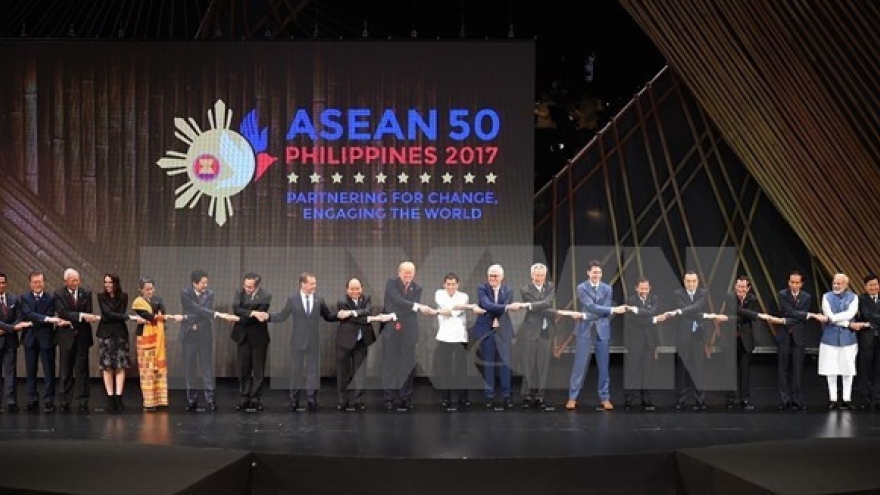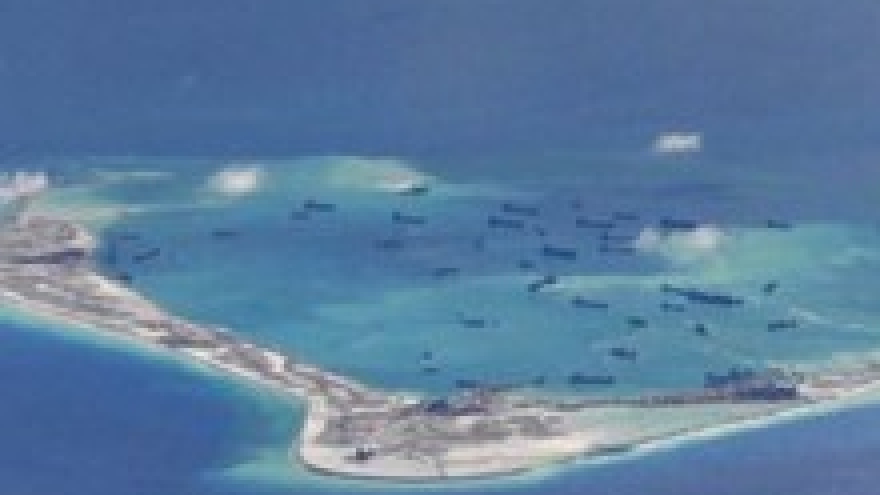Seminar on East Sea held at European Parliament
The Gabriel Péri Foundation of France held an international seminar on the East Sea at the European Parliament in Brussels, Belgium, on November 21.
 |
Many said that there are several changes in the East Sea in recent times, including fishing-related policies, environmental protection, and construction which alters the status quo at the sea.
They all agreed that international law must be a foundation for all solutions.
Prof. Erik Franckx from the Free University of Brussels mentioned China’s rejection of the Permanent Court of Arbitration (PCA)’s ruling on the East Sea while many others welcomed the decision.
He said he hopes that parties involved will hold bilateral dialogues to seek a solution accepted by all, regardless of big or small countries.
To restore order in the East Sea, the parties should abide by international law, particularly Article 121 in the United Nations Convention on the Law of the Sea 1982, he suggested, adding that the PCA ruling is useful to all parties and holds an important role.
Prof. James Borton from the Center for Asian Studies under the US’s University of South Carolina affirmed that the construction of artificial islands has caused a serious impact on the reproduction of fish sources.
His research showed that the number of fish species reduced by half, while reserves fell by 70-95 percent compared with those in the early 1960s.
He proposed combining policy and science to solve existing issues in the East Sea such as the establishment of a “committee” gathering maritime scientists in the region. He also suggested mapping out and defining sea areas in order to protect the eco-system.
Meanwhile, Ambassador Christian Lechervy, Permanent Secretary for the Pacific at the French Foreign Ministry, stressed the need to maintain regular dialogues between the EU and Asia, between the EU and ASEAN, and ASEAN member states, and between the European Parliament and the ASEAN Inter-Parliamentary Assembly.
The stability and economic growth in the East Sea region will contribute to the world’s economic development, which is the reason pushing the EU to help maintain stability at the strategic sea.
The tribunal declared on July 12, 2016, that China’s claim to “historic rights” over waters within its “nine-dash line” is contrary to the UNCLOS.
It said China has caused permanent and irreparable harm to the coral reef ecosystem at the Spratly (Truong Sa) archipelago, and that it also has no historic title over waters of the East Sea.
The Hague Tribunal also finds no legal basis for China to claim historic rights to resources within the nine-dash line, and that China has interfered with traditional Philippine fishing rights at Scarborough Shoal.
However, China completely rejected the PCA’s ruling, and maintained its stance that disputes between countries with overlapped sovereign claims in the East Sea need to be solved bilaterally.
The East Sea provides one of the most important maritime lanes in the globe and benefits many countries. Therefore, maintaining peace, stability, navigation and over flight security, safety, and freedom in the sea area is the top priority. The parties concerned should display their responsibility in abiding by international law, specifically upholding the supremacy of the rule of law in the East Sea. Every extreme reaction or activities defying international law will fuel tensions and complicate the situation.
In recent years, the East Sea issue has attracted much attention from the international community. Although Europe and the East Sea are located over 9,000km apart, the two regions have mutual dependence in terms of economy, politics, and security.
Therefore, escalated tensions in the East Sea may hurt Europe’s interests and threaten stability and prosperity in the world.



